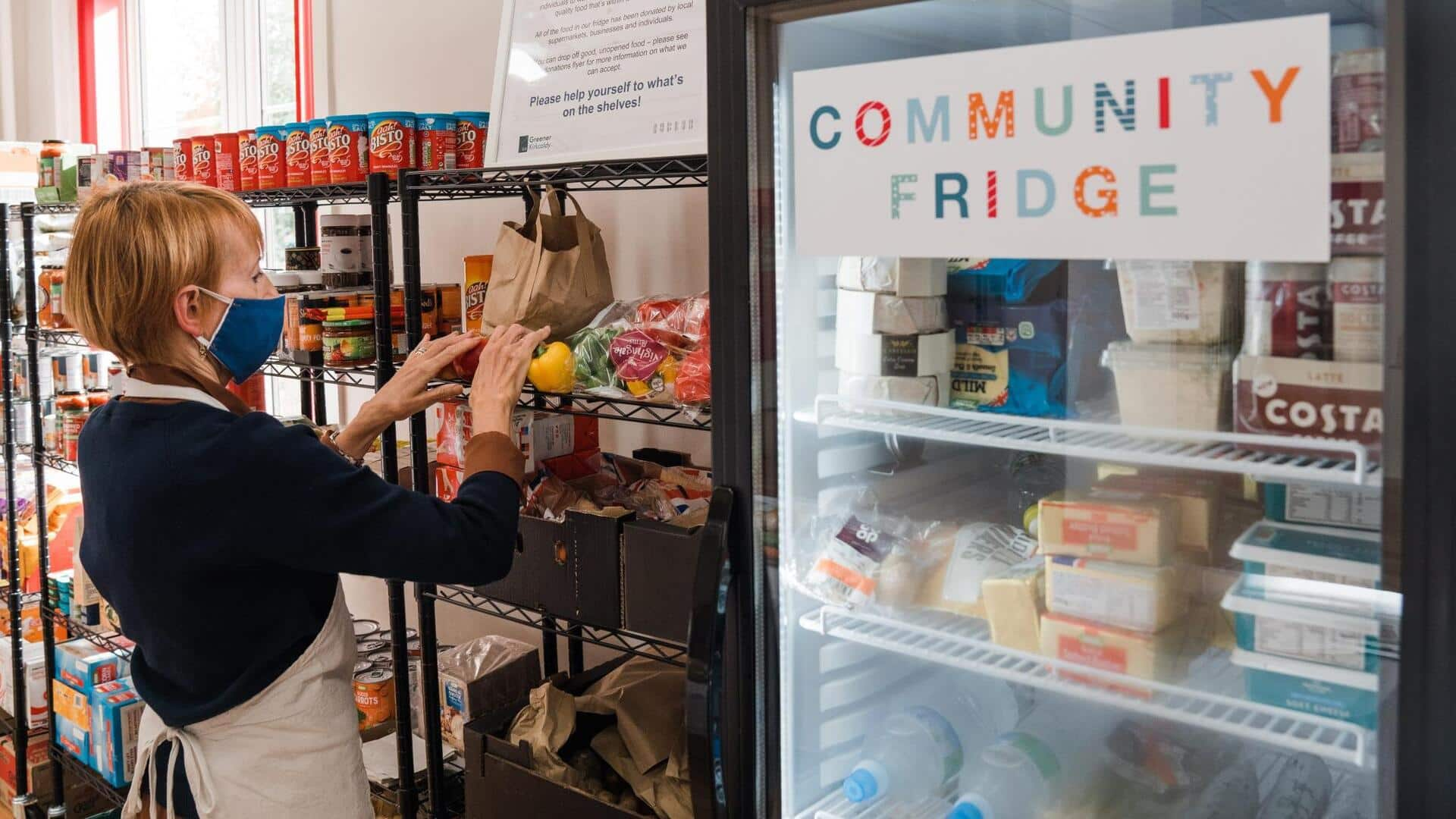
Etiquette for contributing to community fridges
What's the story
Community fridges are a grassroots response to food insecurity, enabling people to share their extra food with neighbors who need it most. These fridges work on the "take what you need, leave what you can" principle, promoting community and mutual assistance. Knowing the etiquette for donating is important to maintain respect and effectiveness for these resources.
Safety first
Check food safety standards
Before donating to a community fridge, make sure items are safe. Perishables should be fresh and within use-by dates. Homemade meals are welcome but should be labeled with ingredients and preparation dates. This helps prevent health risks for those with allergies or dietary restrictions. This step ensures your contribution is helpful and safe.
Inclusivity matters
Respect dietary preferences
Community fridges are used by a wide range of people with different dietary needs and cultural backgrounds. When donating, try to include options that are vegetarian, vegan, and gluten-free. Clear labeling allows people to choose food that fits their dietary restrictions or cultural practices. This way, we can be more inclusive and make sure everyone in the community feels seen and valued.
Orderly contributions
Keep it organized
A clean, organized fridge makes it more appealing and user-friendly for everyone. When you donate, please place items neatly and in designated areas if provided, like separate shelves for plant-based options. Don't overstock the fridge, it often results in waste if items spoil before they can be used. A clean space motivates more people to share, and it's also fair to volunteers who maintain the fridge.
Health is wealth
Prioritize nutritious options
While any donation is appreciated, focusing on nutritious foods can make a huge difference in community health. Fresh fruits, vegetables, whole grains, and dairy alternatives provide important nutrients that are beneficial for everyone's diet but are especially important for those experiencing food insecurity who may not have access to such options otherwise. Your thoughtful donations can make a positive impact on the health and well-being of your community members.
Community compliance
Follow local guidelines
Different communities may have specific rules or preferences regarding their fridge operations. Some might not accept certain types of packaged goods or request that donors focus on non-perishable items during specific seasons. Familiarize yourself with these guidelines by contacting organizers or checking information posted near the fridge itself. Adhering to local protocols ensures your contributions are helpful rather than burdensome.